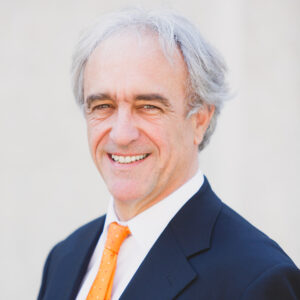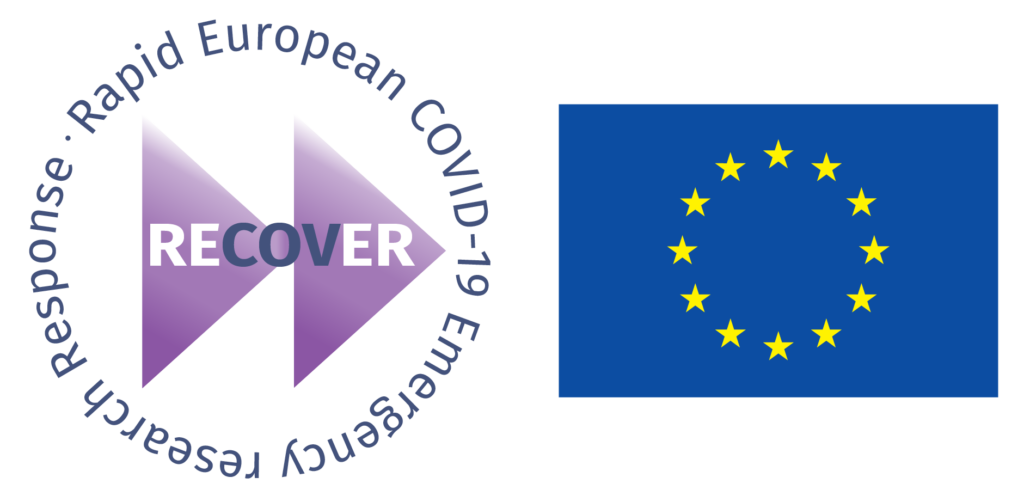11 December 2020
To better understand what working on COVID-19 during the pandemic entails, we have interviewed RECOVER project member Jacques Demotes about his role in the project and day-to-day activities.
What is your role within RECOVER/in the COVID-19 pandemic and what it entails?
The general mission of ECRIN is to support the conduct of multinational clinical research in Europe. During this pandemic, our role is also to coordinate European COVID-19 trials to avoid any duplication or overlap, and make sure that resources are used in an optimal way in terms of access to patients, medical expertise, and budget. This is exceptional, because usually science is funded through bottom-up calls without subsequent coordination. However, coordination is essential to avoid multiple trials addressing the same question in different countries.
Could you tell us a little bit about the project/work you’re involved in?
ECRIN is leading a work package hosting a European COVID-19 Trials Coordination Board (TCB) consisting of lead investigators from RECOVER and EU-RESPONSE. This group of people will coordinate the decisions regarding the COVID-19 Adaptive Platform Trials in Europe and will dialogue with external stakeholders including WHO, ECDC, the European Medicines Agency (EMA), the HTAs (EUnetHTA), and the national competent authorities (CTFG). In addition, a Joint Access Advisory Mechanism (JAAM) will be established to ensure coordination of, and access to the trials. Last but not least, a toolbox will be developed to support the planning, the management and the conduct of platform trials for any medical condition.
What is the expected impact of the work you’re doing?
Competition is the rule in science with positive consequences in terms of excellence. On the other hand, competition may lead to fragmentation and this is particularly visible during the COVID-19 pandemic. The expected impact of the work we are doing is to better coordinate all the European efforts to tackle COVID-19 and optimize the use of resources in this direction.
In the context of COVID-19, what are some of things you’ve found surprising to work with?
The tremendous enthusiasm of the scientific community was astonishing. A lot of researchers and organizations did not hesitate to jump into a new scientific domain. For example, ECRIN facilitates clinical trials in different fields (psychiatry, cardiovascular, oncology, and so on), and in a few weeks we were able to provide efficient support to people working on infectious diseases as well.
Do you have any lessons to share for the future?
It is essential to build on existing networks to make sure we can rapidly develop clinical trials. In addition, having coordination mechanisms already in place would benefit research in times of crisis. And funding mechanisms for multinational trials should be available. These are the most important lessons we learnt from the COVID-19 pandemic.
About Jacques Demotes

Jacques Demotes is the director general of the European Clinical Research Infrastructure Network (ECRIN), which he founded in 2004. In this role, he is responsible for the strategy and overall management of the infrastructure with the support of the ECRIN Management Office (located in Paris, France), the ECRIN European Correspondents (located in each Member / Observer country), and ECRIN’s Scientific Partners (i.e., national networks of clinical trial units).
A neurologist and professor of cell biology, Demotes is an advisor to the biology and health research department at the French Ministry of Higher Education and Research. While at ECRIN, he has contributed to numerous initiatives and collaborative projects related to multinational clinical trials. In particular, he chaired the working group that drafted the Organisation for Economic Co-operation and Development (OECD) Council Recommendation on the Governance of Clinical Trials.
Prior to ECRIN, he worked as a clinical neurologist and basic neuroscientist, then as director of the clinical investigation centre in Bordeaux.
Demotes received his MD (with a specialisation in neurology), a PhD in neuroscience, a Master of Science (MS) in neuroscience, and a Bachelor of Arts (BA) in mathematics and computer science from the University of Bordeaux. He also received an MBA from IAE Paris, and completed a training course in science policy with the Institute of Advanced Studies in Science and Technology in Paris.
